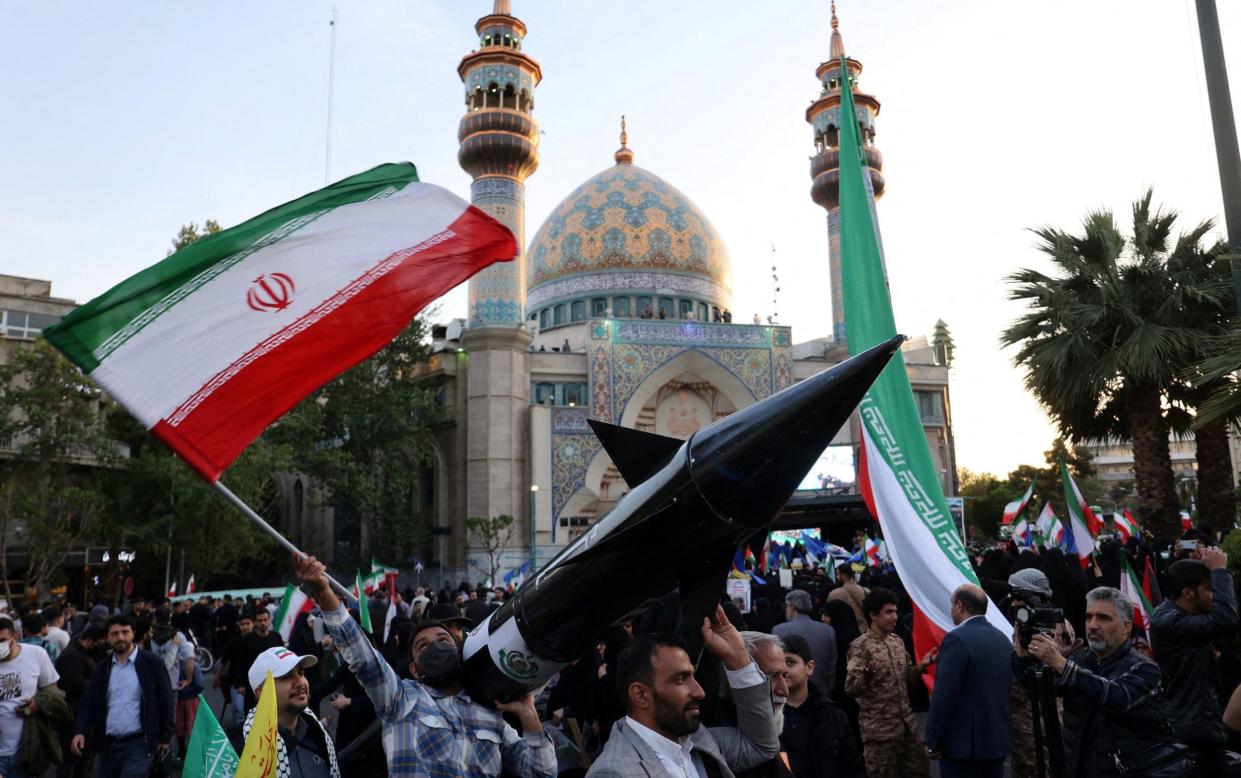Israel must strike Iran’s nuclear sites – and soon

What if one of the missiles streaking from Iran towards Israel had been carrying a nuclear payload? That question has been asked by many in the defence establishment this week. For all the alarm about rockets and drones, the atomic threat is true danger.
Jerusalem’s impressive retaliatory strike whispered a warning about its capabilities while offering a generous exit from escalation, and kept the international community happy. After so many allies had come to its defence, Israel owed them cooperation. But in many ways, it is more vulnerable than it was before.
Right now, war with Iran would suit nobody. Israel has Hamas to destroy and hostages to release, not to mention Hezbollah in the north. But international pressure not to “escalate” meant that Friday’s operation was about fear rather than pain. Fanaticism has a way of dulling fear.
The penalty for a massive aerial barrage, which cost Israel and its allies $1 billion to thwart, is now clear: a pinpoint strike on an airfield in Isfahan. In other words, the Iranians have succeeded in creating a world in which direct attacks on the Jewish state are no longer off the table.
In every dimension of the conflict, Tehran has long been advancing on Israel in increments. This applies to its nuclear progress as much as conventional warfare. In January, International Atomic Energy Agency inspectors visited Fordow, an Iranian nuclear site on the fringes of the Great Salt Desert. They were appalled by what they found. It had mothballed its enrichment processes in 2015, yet now it had been fitted with new equipment and was on track to double its output, including highly enriched uranium.
That same month, Iran’s former foreign minister said: “We have (crossed) all the thresholds of nuclear science and technology... Here’s an example. Imagine what a car needs. It needs a chassis, an engine, a steering wheel, a gearbox. You’re asking if we’ve made the gearbox, I say yes. Have we made the engine? Yes.” It just needs to be put together.
Tehran’s “breakout time” to achieve enough weapons-grade uranium for a bomb is close to zero. It would be a matter of months before the fissile material was deployable on a warhead.
With polls predicting a second Trump presidency, and the return of the man who imposed “maximum pressure” on Iran, Tehran may decide to go nuclear before November, reshaping the power balance of the Middle East before he takes office.
Appeasement has clearly failed. For years, the Israeli side has been calling on the Americans to adopt a four-part strategy of nuclear containment: robust sanctions, pressure from the UN and regional deterrents from a strengthened alliance with Gulf states and other moderate Arab countries and, crucially, a credible military threat.
Not only was this approach never properly adopted, it has been wilfully undermined by the White House. As a result, if Iran is to be prevented from dominating the Middle East and possibly heralding the apocalypse, military force must fall upon the regime’s nascent nukes. And soon.
In extremis, the Jewish state could destroy Iran’s nuclear facilities alone, probably by dropping several bunker buster bombs in succession to reach the complexes deep underground. But the operation really needs American might, including heavy bombers and Massive Ordnance Air Blast bombs.
Containing the fallout, both across the region and vis-à-vis Russia and China, would also require American leadership. God knows the White House owes Jerusalem this much. But years of appeasement mean that the day is coming when Israel must strike, with or without Uncle Sam.
Jake Wallis Simons is the author of ‘Israelophobia’

